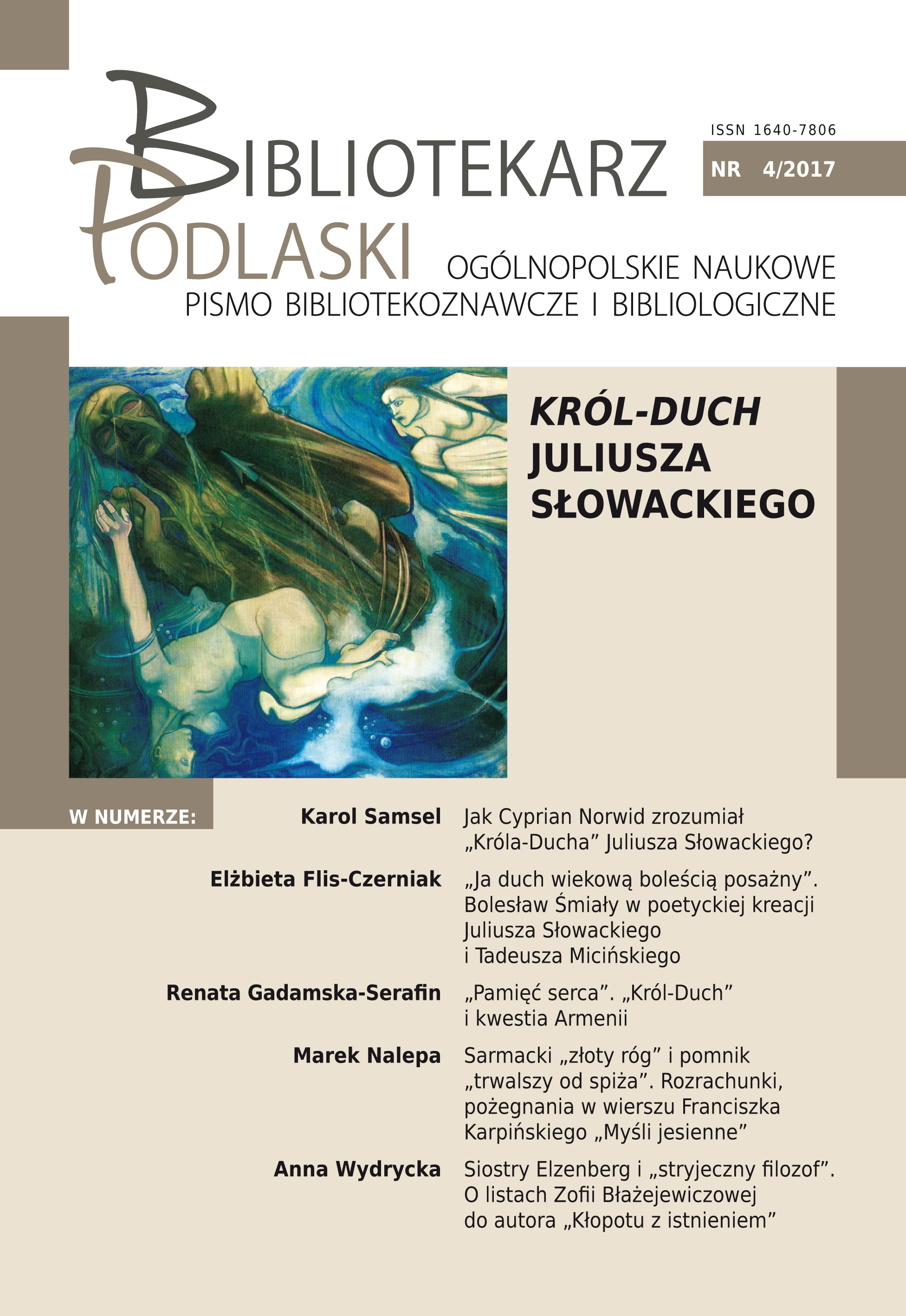Abstract
This article aims to analyse the rite of marriage among Polish Tatars on the basis of the description of that rite presented in Aliyevitch’s Chamaile. In the introduction the language characteristics present in the chamaile and in general in tartar literature is presented. The next part of the article is devoted to the description of the monument of Tatar literature: Aliyevitch’s Chamaile: its appearance, structure and a detailed list of contents. The last part contains a description of the marriage and a translated excerpt of Aliyevitch’s Chamaile concerning this rite.
References
A-Z Mała Encyklopedia, PWN, Warszawa 1995.
Antonowicz A. Konstantinovich, Belorusskie teksty pisannye arabskim pismom i ich grafiko-orfografičeskaja sistema, Wilno 1968.
Borawski P., Dubiński A., Tatarzy Polscy. Dzieje, obrzędy, legendy, tradycje, Ludowa Spółdzielnia Wydawnicza, Warszawa 1986.
Kosowski A. P., Nowojorski meczet Rzeczypospolitej. Historia gminy tatarskiej w Stanach Zjednoczonych, Wrocław-Bydgoszcz 2011.
Łapicz C., Kitab Tatarów litewsko-polskich. Paleografia, grafia, język, Uniwersytet Mikołaja Kopernika, Toruń 1986.
Łoś J., Język tatarski, [w:] Encyklopedia polska AU, tom. 3, cz. 2.
Madeyska D., Mahr, [w:] Mały słownik kultury świata arabskiego, Józef Bielawski (red.), Warszawa 1971.
Pamiętnik Franciszka Mickiewicza, z autografu wydał i objaśnił J. Kallenbach, słowo wstępne, W. Mickiewicz, Lwów-Warszawa-Kraków 1923.
Tatarskim szlakiem. Kruszyniany i okolice. Przewodnik, MZR, Kruszyniany 2010.
Artykuły:
Drozd A. , Chamaił Sobolewskiego, „Rocznik Tatarów Polskich” 1 (1993).
Dubiński A., Charakterystyka języka Tatarów polsko-litewskich, „Acta Baltico-Slavica” 14 (1982).
Majewska L., Wspomnienia o Ibrahimie Bonisławie Alijewiczu, imamie Tatarskiej Gminy Rzeczypospolitej w Nowym Jorku, „Przegląd Tatarski” 1) 2014.
Markowski R., Muzułmański obraz Boga i człowieka w kontekście doktryny katolickiej, „Warszawskie Studia Teologiczne” XIX (2006).
Szynkiewicz J., Literatuta religijna Tatarów litewskich i jej pochodzenie, „Rocznik Tatarski” 2 (1935).
Articles published in the “gold open access” mode on the basis of a non-exclusive license agreement between the publisher and the author. Permitted use:
- the publication may be read and stored on any device,
- the publication may be cited (with obligatory reference to the author, the title of the text, as well as the full title, bibliographic address of the issue and page of the journal)
The editorial team of “Bibliotekarz Podlaski” implements an open access policy by publishing materials in the form of the so-called Gold Open Access. From volume 42 (issue 1/2019), the journal is available under the Creative Commons license (Attribution – ShareAlike: CC BY-SA).
The key declarations of the Open Access and Open Science movement, which we fully support, are available on the CEON Open Science website.
COPYRIGHT:
The editorial team of “Bibliotekarz Podlaski” implements an open access policy by publishing materials in the form of the so-called Gold Open Access. The journal is available under the Creative Commons license – Attribution – ShareAlike 4.0: International: CC BY-SA 4.0).
The key declarations of the Open Access and Open Science movement, which we fully support, are available on the CEON Open Science website.
“Bibliotekarz Podlaski” allows its readers to read, download, copy, distribute, print, search and link to the full content of articles. We enable full, immediate, unlimited (both in a territorial, temporal and technical sense) open access to all published content, in accordance with the principle that freely available research increases and accelerates the global development of science and the exchange of knowledge.
The editorial team of “Bibliotekarz Podlaski” encourages authors to place articles published in the journal in open repositories (after the review or the final version of the publisher), provided that a link to the journal’s website is provided.
The journal does not charge the authors any fees for accepting and publishing their texts.

